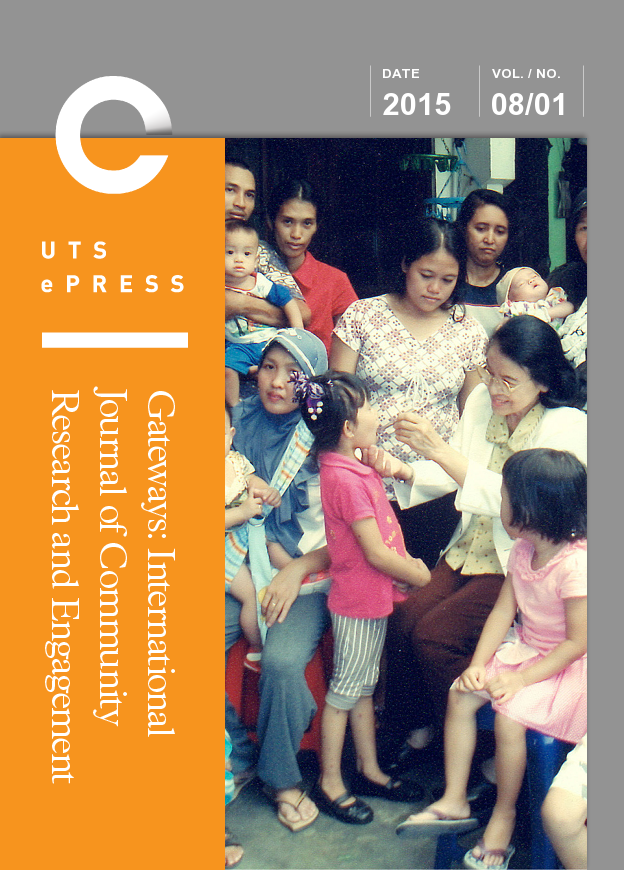The politics of public engagement – Reclaiming community?
Main Article Content
Abstract
This article examines the tension between the rhetoric and reality of public engagement, seen through the eyes of a practitioner who has worked in both the arenas of community activism and as a public engagement broker within a UK Russell Group university over the course of the last 15 years. This has coincided with the rise to prominence of public engagement as a means of re-energising the debate about the University as an ‘ethical beacon’ and as an agent of civic and social life. This renewed engagement with ‘the public’ has created many powerful research programmes, conferences, debates, resources and toolkits, has fostered organisations and influenced policy. But has it maintained a focus on ‘community’ as a means of understanding and listening to real people, on the ground, and the issues and concerns that animate and concern them? And how far has ‘community’ been squeezed out because it is no longer part of the prevailing political discourse, supplanted by the more broadly interpreted - and possibly more palatable - concept of ‘public’?
Suggestions are offered to counter possible ambivalence on the behalf of universities with regard to engaging in ‘deep’ community engagement through both historical and new articulations of adult education and democracy.
Article Details

This work is licensed under a Creative Commons Attribution 4.0 International License.
Authors who submit articles to this journal from 31st March 2014 for publication, agree to the following terms:
a) Authors retain copyright and grant the journal right of first publication with the work simultaneously licensed under a Creative Commons Attribution License that allows others to share and adapt the work with an acknowledgement of the work's authorship and initial publication in this journal.
b) Authors are able to enter into separate, additional contractual arrangements for the non-exclusive distribution of the journal's published version of the work (e.g., post it to an institutional repository or publish it in a book), with an acknowledgement of its initial publication in this journal.
c) Authors are permitted and encouraged to post their work online (e.g., in institutional repositories or on their website) prior to and during the submission process, as it can lead to productive exchanges, as well as earlier and greater citation of published work (See The Open Access Citation Advantage Service). Where authors include such a work in an institutional repository or on their website (ie. a copy of a work which has been published in a UTS ePRESS journal, or a pre-print or post-print version of that work), we request that they include a statement that acknowledges the UTS ePRESS publication including the name of the journal, the volume number and a web-link to the journal item.
d) Authors should be aware that the Creative Commons Attribution (CC-BY) License permits readers to share (copy and redistribute the work in any medium or format) and adapt (remix, transform, and build upon the work) for any purpose, even commercially, provided they also give appropriate credit to the work, provide a link to the license, and indicate if changes were made. They may do these things in any reasonable manner, but not in any way that suggests you or your publisher endorses their use.
For Volume 6 (2013) and before, the following copyright applied:
Articles published by UTSePress are protected by copyright which is retained by the authors who assert their moral rights. Authors control translation and reproduction rights to their works published by UTSePress. UTSePress publications are copyright and all rights are reserved worldwide. Downloads of specific portions of them are permitted for personal use only, not for commercial use or resale. Permissions to reprint or use any materials should be directed to UTSePress.
